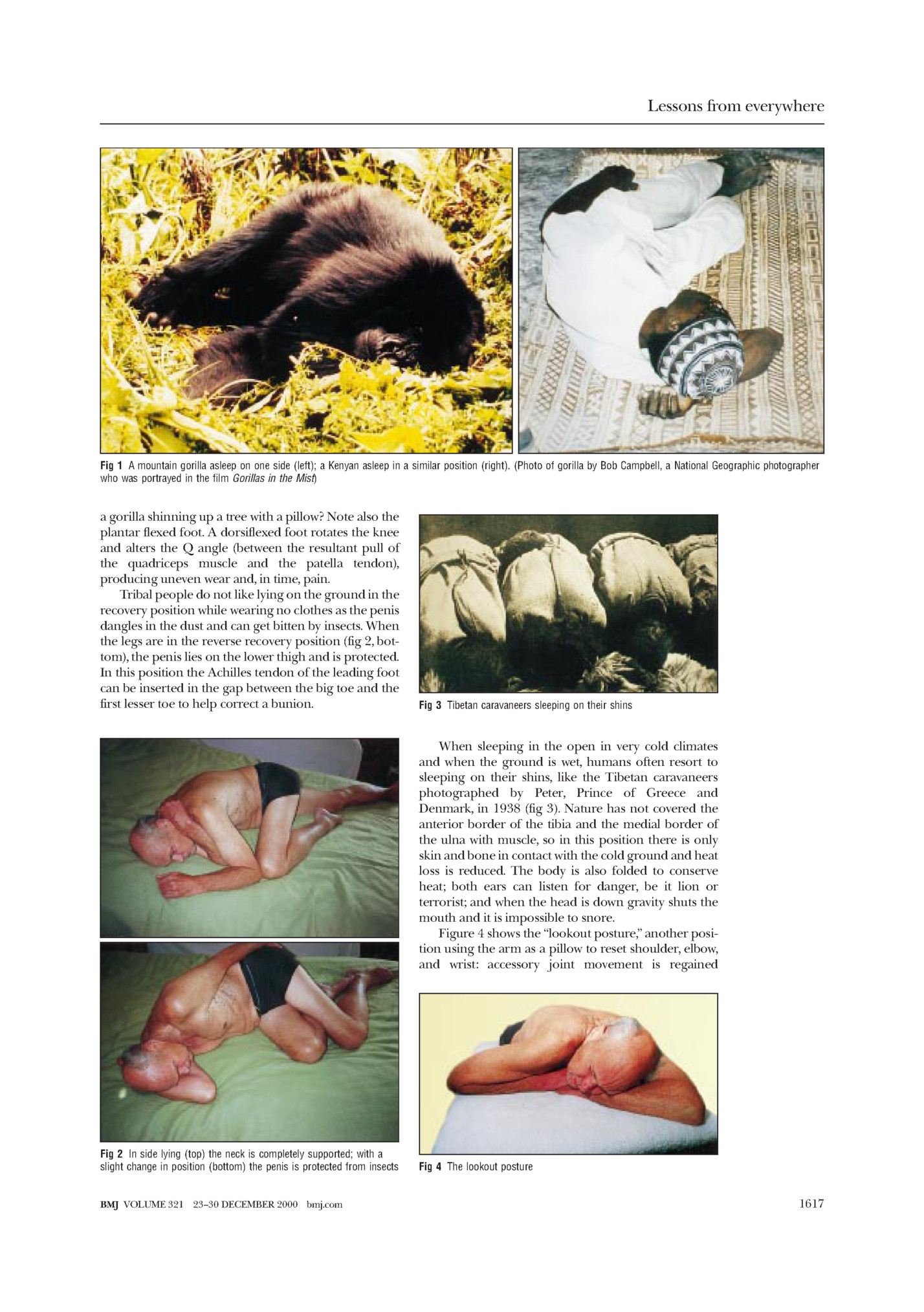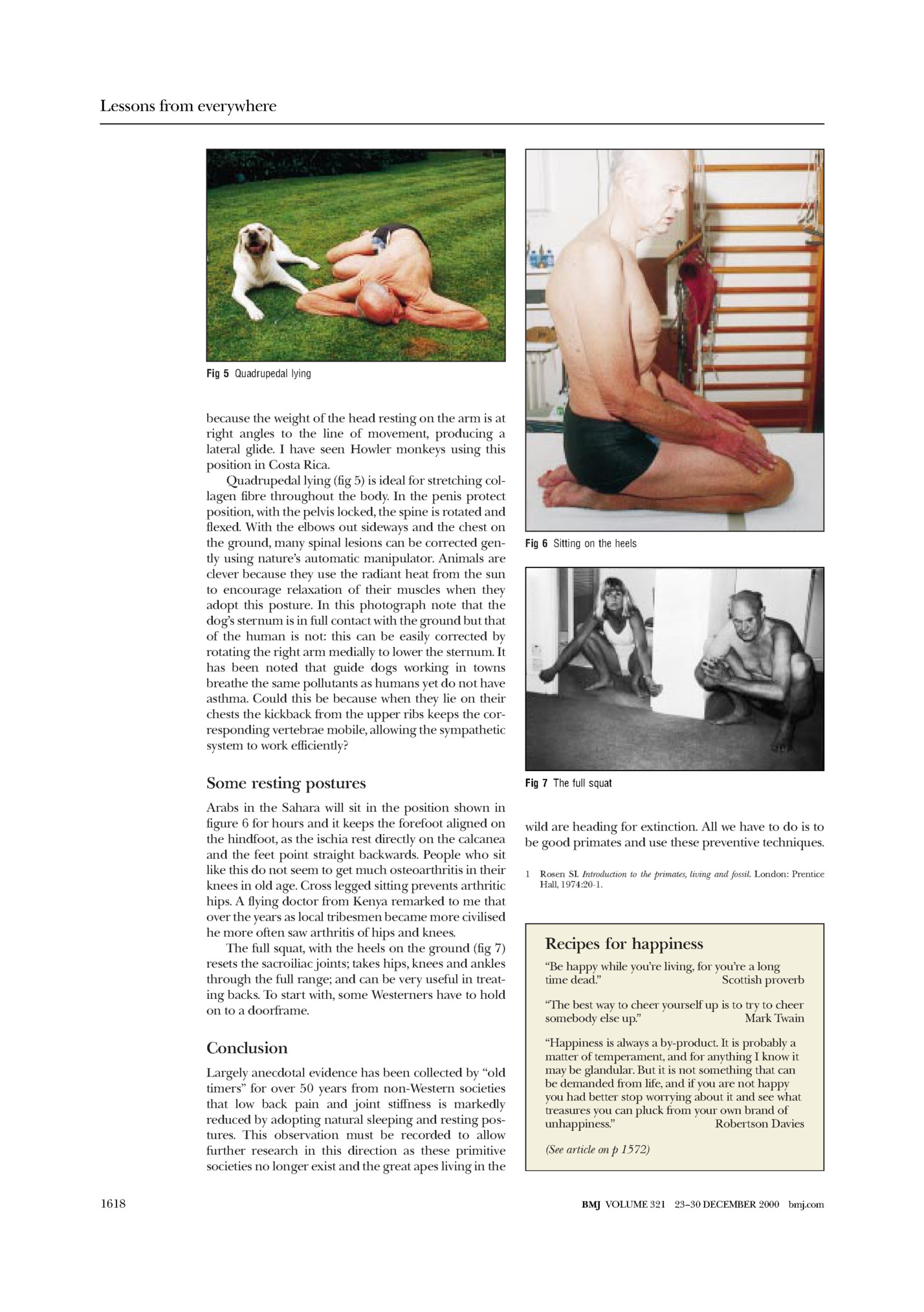he said; “I’ll make up the bed for you, it isn’t really that difficult.” Not quite knowing what to say or do, I stood aside. He then stripped the bed of its linen and fetched new sheets and pillow cases from the closet. While I watched with increasing embarrassment, he skilfully made up the bed with an end result that would have been the envy of any hotel housemaid. Clearly he had risen from the ranks to attain his present position. He then changed the towels in the bathroom and picked up the soiled linen. With a slight bow and a repeated apology, he was on his way. I remember this occurrence after many years. Why did I have to call the supervisor, and what justification did I have for being irritated? Fresh linen was in the room in abundance: why could I not have made up the bed myself? As the gentleman had said (without any trace of rancour), it wasn’t really “that difficult.” I am reminded of a story in which Albert Schweitzer, in his later years, once asked a bystander to move an obstruction in the road. “I am an intellectual,” was the response, “not a servant.” “I,” said Schweitzer, “am a servant. Will an intellectual help a servant clear the road?” Perhaps I was an intellectual that evening, and needed a servant to do the “work.” Not my job Towards the end of the day, I noticed that the carpet was strewn with a few kernels of popcorn, no doubt the remains of a snack provided by a medical representative. There were not too many fragments, and I started picking them up. Feeling slightly uncomfortable, for no very good reason, I looked up suddenly to find two secretaries staring at me. “Why are you picking up the popcorn?” one of them asked. Not quite knowing how to respond, I replied “I just thought that I would put them in the trash can.” “But why?” she persisted, “we could have called housekeeping. It’s their job.” I murmured something and moved away, but I felt a warm glow of satisfaction. Today, I was a servant. Instinctive sleeping and resting postures: an anthropological and zoological approach to treatment of low back and joint pain Michael Tetley 27 Cunningham Hill Road, St Albans AL1 5B Michael Tetley physiotherapist BMJ 2000;321:1616–8 If you are a medical professional and have been trained in a “civilised” country you probably know next to nothing about the primate Homo sapiens and how they survive in the wild. You probably do not know that nature has provided an automatic manipulator to correct most spinal and peripheral joint lesions in primates. In common with millions of other so called civilised people you suffer unnecessarily from musculoskeletal problems and are discouraged about how to treat the exponential rise in low back pain throughout the developed world. Humans are one of 200 species of primates.1 All primates suffer from musculoskeletal problems; nature, recognising this fact, has given primates a way to correct them. The study of animals in the wild has been a lifelong pursuit. I grew up with tribal people and in 1953-4 commanded a platoon of African soldiers from nine tribes, who taught me to sleep on my side without a pillow so that I could listen out for danger with both ears. I have organised over 14 expeditions all over the world to meet native peoples and study their sleeping and resting postures. They all adopted similar postures and exhibited few musculoskeletal problems. I must emphasise that this is not a comparison of genes or races but of lifestyles. I tried to carry out surveys to collect evidence but they were meaningless, as tribespeople give you the answer they think you want. They often object to having their photographs taken, so I have demonstrated the postures. Some instinctive sleeping postures Figure 1 shows a mountain gorilla lying on the ground on his side without a pillow—a position in which I have 1616 Summary points Forest dwellers and nomads suffer fewer musculoskeletal lesions than “civilised” people Nature’s automatic manipulator during sleep is the kickback against the vertebrae by the ribs when the chest is prevented from movement by the forest floor Various resting postures correct different joints Pillows are not necessary also seen chimpanzees and gibbons sleeping—and a Kenya African in a similar position on a palm leaf mattress on a concrete floor. Note how he uses his laterally rotated arm as a pillow and can listen out for danger with both ears. When lying on one side you do not even need the arm as a pillow: when the lower shoulder is fully hunched, the neck is completely supported. I think the neck should deviate towards the ground as gravity then shuts the mouth, preventing insects from entering, and a little traction is applied to the cervical spine (fig 2, top). When the head is down, the vertebrae are stretched between two anchors and every time the ribs move through breathing the tension is increased, the vertebrae realign themselves, and the movement keeps the joints lubricated. Current thinking is to keep the spine straight by use of a pillow. Has anyone ever seen BMJ VOLUME 321 23–30 DECEMBER 2000 bmj.com

Fig 1 A mountain gorilla asleep on one side (left); a Kenyan asleep in a similar position (right). (Photo of gorilla by Bob Campbell, a National Geographic photographer who was portrayed in the film Gorillas in the Mist) a gorilla shinning up a tree with a pillow? Note also the plantar flexed foot. A dorsiflexed foot rotates the knee and alters the Q angle (between the resultant pull of the quadriceps muscle and the patella tendon), producing uneven wear and, in time, pain. Tribal people do not like lying on the ground in the recovery position while wearing no clothes as the penis dangles in the dust and can get bitten by insects. When the legs are in the reverse recovery position (fig 2, bottom), the penis lies on the lower thigh and is protected. In this position the Achilles tendon of the leading foot can be inserted in the gap between the big toe and the first lesser toe to help correct a bunion. Fig 3 Tibetan caravaneers sleeping on their shins When sleeping in the open in very cold climates and when the ground is wet, humans often resort to sleeping on their shins, like the Tibetan caravaneers photographed by Peter, Prince of Greece and Denmark, in 1938 (fig 3). Nature has not covered the anterior border of the tibia and the medial border of the ulna with muscle, so in this position there is only skin and bone in contact with the cold ground and heat loss is reduced. The body is also folded to conserve heat; both ears can listen for danger, be it lion or terrorist; and when the head is down gravity shuts the mouth and it is impossible to snore. Figure 4 shows the “lookout posture,” another position using the arm as a pillow to reset shoulder, elbow, and wrist: accessory joint movement is regained Fig 2 In side lying (top) the neck is completely supported; with a slight change in position (bottom) the penis is protected from insects BMJ VOLUME 321 23–30 DECEMBER 2000 bmj.com Fig 4 The lookout posture 1617

Fig 5 Quadrupedal lying because the weight of the head resting on the arm is at right angles to the line of movement, producing a lateral glide. I have seen Howler monkeys using this position in Costa Rica. Quadrupedal lying (fig 5) is ideal for stretching collagen fibre throughout the body. In the penis protect position, with the pelvis locked, the spine is rotated and flexed. With the elbows out sideways and the chest on the ground, many spinal lesions can be corrected gently using nature’s automatic manipulator. Animals are clever because they use the radiant heat from the sun to encourage relaxation of their muscles when they adopt this posture. In this photograph note that the dog’s sternum is in full contact with the ground but that of the human is not: this can be easily corrected by rotating the right arm medially to lower the sternum. It has been noted that guide dogs working in towns breathe the same pollutants as humans yet do not have asthma. Could this be because when they lie on their chests the kickback from the upper ribs keeps the corresponding vertebrae mobile, allowing the sympathetic system to work efficiently? Some resting postures Arabs in the Sahara will sit in the position shown in figure 6 for hours and it keeps the forefoot aligned on the hindfoot, as the ischia rest directly on the calcanea and the feet point straight backwards. People who sit like this do not seem to get much osteoarthritis in their knees in old age. Cross legged sitting prevents arthritic hips. A flying doctor from Kenya remarked to me that over the years as local tribesmen became more civilised he more often saw arthritis of hips and knees. The full squat, with the heels on the ground (fig 7) resets the sacroiliac joints; takes hips, knees and ankles through the full range; and can be very useful in treating backs. To start with, some Westerners have to hold on to a doorframe. Conclusion Largely anecdotal evidence has been collected by “old timers” for over 50 years from non-Western societies that low back pain and joint stiffness is markedly reduced by adopting natural sleeping and resting postures. This observation must be recorded to allow further research in this direction as these primitive societies no longer exist and the great apes living in the 1618 Fig 6 Sitting on the heels Fig 7 The full squat wild are heading for extinction. All we have to do is to be good primates and use these preventive techniques. 1 Rosen SI. Introduction to the primates, living and fossil. London: Prentice Hall, 1974:20-1. Recipes for happiness “Be happy while you’re living, for you’re a long time dead.” Scottish proverb “The best way to cheer yourself up is to try to cheer somebody else up.” Mark Twain “Happiness is always a by-product. It is probably a matter of temperament, and for anything I know it may be glandular. But it is not something that can be demanded from life, and if you are not happy you had better stop worrying about it and see what treasures you can pluck from your own brand of unhappiness.” Robertson Davies (See article on p 1572) BMJ VOLUME 321 23–30 DECEMBER 2000 bmj.com

Fleepit Digital © 2021